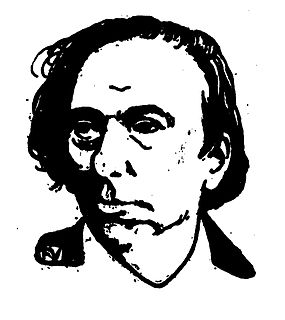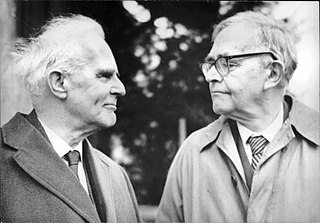A Quote by Euripides
There is nothing more hostile to a city that a tyrant, under whom in the first and chiefest place, there are not laws in common, but one man, keeping the law himself to himself, has the sway, and this is no longer equal.
Related Quotes
The man who is meek is not even sensitive about himself. He is not always watching himself and his own interests. He is not always on the defensive… To be truly meek means we no longer protect ourselves, because we see there is nothing worth defending… The man who is truly meek never pities himself, he is never sorry for himself. He never talks to himself and says, “You are having a hard time, how unkind these people are not to understand you.
If a young man gets married, and starts a family and spends the rest of his life working at a soul-destroying job, he is held up as an example of virtue and responsibility. The other type of man, living only for himself, working only for himself, doing first one thing and then another simply because he enjoys it and because he has to keep only himself, sleeping where and when he wants, and facing woman when he meets her on equal terms and not as one of a million slaves, is rejected by society. The free, unshackled man has no place in its midst.
When each citizen submits himself to the authority of law he does not thereby decrease his independence or freedom, but rather increases it. By recognizing that he is a part of a larger body which is banded together for a common purpose, he becomes more than an individual, he rises to a new dignity of citizenship. Instead of finding himself restricted and confined by rendering obedience to public law, he finds himself protected and defended and in the exercise of increased and increasing rights.
The haggard aspect of the little old man was wonderfully suited to the place; he might have groped among old churches and tombs and deserted houses and gathered all the spoils with his own hands. There was nothing in the whole collection but was in keeping with himself nothing that looked older or more worn than he.
The present relationship existing between husband and wife, where one claims a command over the actions of the other, is nothing more than a remnant of the old leaven of slavery. It is necessarily destructive of refined love; for how can a man continue to regard as his type of the ideal a being whom he has, be denying an equality of privilege with himself, degraded to something below himself?
Humility collects the soul into a single point by the power of silence. A truly humble man has no desire to be known or admired by others, but wishes to plunge from himself into himself, to become nothing, as if he had never been born. When he is completely hidden to himself in himself, he is completely with God







































